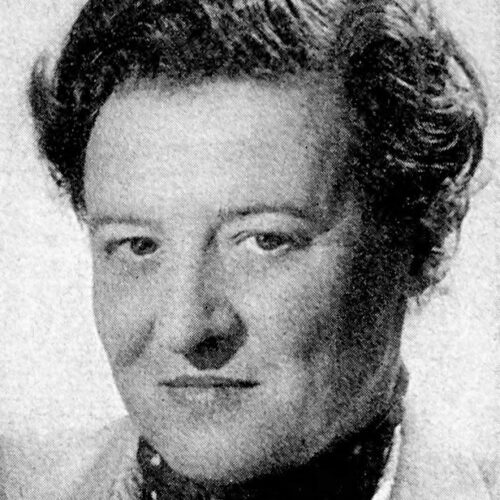

Now art, certainly literary art, is ‘existential’ and has to be so. It is, if nothing else, about the real concrete human being as he is and as he is becoming in a real present. And this is what Humanism also ought to be.
Kathleen Nott, ‘Humanism and the Arts’ in The Humanist Outlook (1968)
Kathleen Nott was a writer, poet, philosopher, and humanist. A longtime editor for PEN (an international association of writers), she was briefly English PEN’s President. She was a member of the Advisory Council of the British Humanist Association (now Humanists UK) from 1963, and an Honorary Associate of the Rationalist Press Association. Nott advocated a positive humanist philosophy of rational thinking and compassionate living, enriched by a devotion to literature, and epitomised in her own life and works.
I do not wish to deny that the world is in a bad way. But I must add that there is no bad time like the present.
Kathleen Nott, The Emperor’s Clothes (1953)
Kathleen Nott was born in Camberwell, London on 11 February 1905. A gifted child, she went from state school to King’s College, London, and then on a scholarship to Somerville College, Oxford, where she read philosophy, politics and economics (PPE). At Oxford she met her future husband, scientist Christopher Bailey, who she married in 1929. Working as a social worker in London during the 1930s informed Nott’s first novel, Mile End, published in 1938.
The couple lived in Bournemouth throughout the Second World War, and subsequently in Sweden, about which she wrote A Clean, Well-Lighted Place (1961). From the 1950s onwards, Nott was actively involved in PEN. For nearly three decades, she edited its magazine the Bulletin of Selected Books (later Pen International), which sought to bring literary works in lesser known languages to the attention of a wider public. She was elected President of English PEN 1974-5, and a Fellow of the Royal Society of Literature in 1977. Throughout these years, she published consistently, including works of poetry, fiction, and philosophy. One of these works was The Emperor’s Clothes (1953), a philosophical study of the Christian propositions of some prominent literary figures.
In 1959, Irish poet Robert Greacen wrote a profile of Kathleen Nott for The Humanist, under the title ‘Modern Humanism at Its Best’. He described The Emperor’s Clothes as ‘far more than a demolition job directed against the opponents of humanism,’ calling it ‘positive and good-tempered’ with its points ‘wittily pressed home’. In The Emperor’s Clothes Nott took issue with the dogmatic Christianity she found being promoted in the works of, among others, T.S. Eliot and C.S. Lewis. She set out to challenge the claim that reason had failed humankind, and the subsequent assumption that religious faith was needed to fill a gap. In its final pages, Nott argued:
Science can be regarded as our fundamental human tradition, because any genuine attempt to describe and classify experience is the germ of a scientific attitude. The confusions and errors of dogmatism arise when we try, as we repeatedly do, to hypostasise the language of description into prophecy and prescription… ‘Thou shalt love thy neighbour as thyself’ is a statement of the discovered law of survival. It tells us what is not only possible but necessary if we are to continue to live on this planet. It contains an implied observation which by now we are used, or we should be used, to seeing in the longhand of contemporary psychology—that we cannot love our neighbours if we hate ourselves. But when we subscribe to the obstinate dogmatic insistence on the concept of Sin, we are hating ourselves. We oppose another abstraction to the abstraction which centuries of theological dogmatism have taught us to make out of the idea of Love, and forget that we take the first and essential step towards charity only when we clarify our understanding of our own needs and possibilities.
With this positive philosophy of self-knowledge and empathy in mind, Greacen described Nott’s book as ‘a series of affirmations, a saying ‘yes’ to life’.
In her later years, Nott suffered from increasing deafness, and from the mid-1980s with Parkinson’s disease. She retained, though, her sharp mind until the end. Kathleen Nott died on 20 February 1999, at the age of 94.
After Nott’s death, the Times wrote that she ‘always knew exactly what she wanted to say, and was notable for her robust attacks on ideas with which she felt herself to be in fundamental conflict.’ To those who knew her, though – like Elizabeth Paterson, writing for The Guardian – ‘her brilliance and intellectual rigour were tempered by an engaging delight in jokes and puns, as well as enjoyment of the good things in life’. On her retirement from PEN, Nott’s friend Francis King described her as:
a poet sadly underrated by those swept hither and thither on choppy tides of fashion, a prose writer who combines vigour with self-discipline, and a philosopher with a rare gift for exegesis not only of her own ideas but of the ideas of others.
A firm rationalist and a compassionate humanist, Nott was unafraid to challenge what she saw as repressive Christian doctrines, championing instead a positive philosophy in life and art.
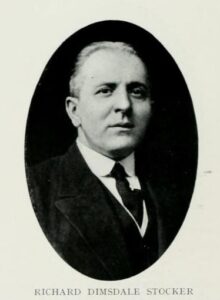
But this much is certain, that, taking the world as we find it, sympathy, plus a modicum of common sense […]
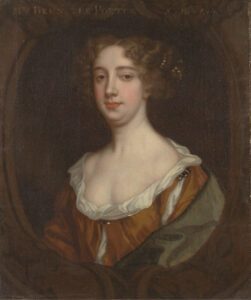
…that perfect Tranquility of Life, which is no where to be found, but in retreat, a faithful Friend and a […]
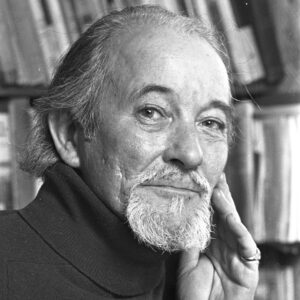
I think I was born a humanist. John D. Stewart, The Honest Ulsterman, May 1968 John D. Stewart was a […]
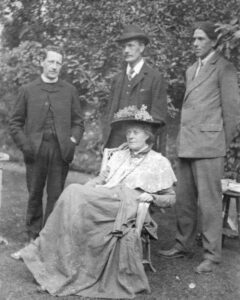
The gist of heresy is free personal choice in act, and specially in thought – the rejection of traditional faiths […]